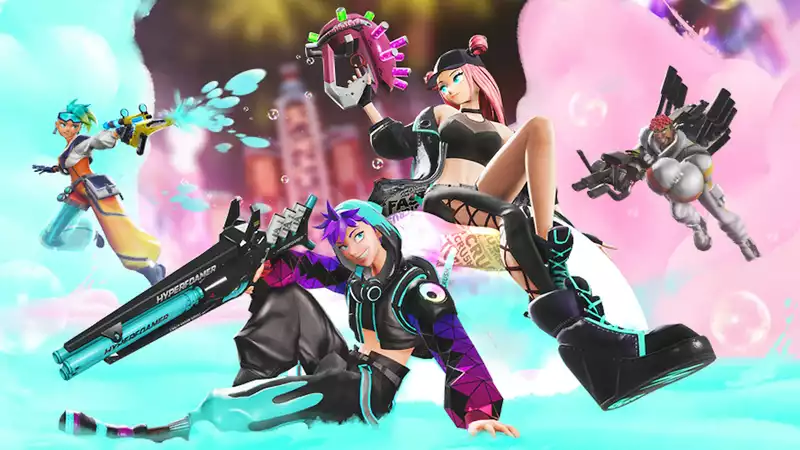A few weeks after Square Enix president Takashi Kiryu said that the company would "actively utilize AI" in the content creation process, the company confirmed to VGC that AI-generated art is indeed used in the new multiplayer party shooter "Foamstars" confirmed that the AI-generated art is indeed being used in the new multiplayer shooter "Foamstars.
The presence of AI art in "Foamstars" was first revealed at a recent press event. Producer Kosuke Okatani said that while the majority of the game is created by humans, there is a small amount of art created by Midjourney, a tool that converts text input into images.
"The core elements of Foamstars-the core gameplay, the things that make the game fun-are all created by hand," Okatani said. But we also wanted to try AI." But we also wanted to try AI. In terms of in-game content, AI accounts for 0.01% or less, but we are dabbling with AI by creating in-game icons"
.
Square Enix clarified the use of AI-generated art in "Foamstars" in a subsequent statement, saying that it was used to create in-game album jackets for music used in the game's soundtrack.
"As developers, we are always looking at new technologies and how they can help in game development. In this instance, we experimented with a simple prompt using Midjourney to generate an abstract image. We liked what was created and used it as the final album cover the player would see in the game. Everything else was created by the development team.
While 0.01% of a game's total content is not much, it is enough to highlight the challenges that the rise of AI poses to the gaming industry. Generally speaking, the use of AI-generated content in place of human-produced work is not looked upon favorably, and every game maker has faced considerable pushback when it has attempted it: for example, Prime Matter, publisher of the "System Shock" remake, has been accused of using AI generated Shodan images, which angered fans, and more recently, Wizards of the Coast's use of AI in promotional images for new cards in Magic: The Gathering caused a major backlash.
Despite this, the whole thing feels inevitable. For now, most developers are still winging it, but it is happening. Perhaps the most obvious acknowledgement of this fact is Valve's recent policy shift: after initially being cool to games on Steam that use generative AI, Valve has updated its policy to explicitly allow "the majority of games that use generative AI" to be released on Steam. permitted. This is not so much a canary in the coal mine as standing in the coal dust and lighting a match.
But the Foamstars situation also raises the question of "how much is too much": is any use of AI unacceptable, or can a developer say, "We used a Discord bot to create a dozen little thumbnails, and we're going to release them on Steam. And a corollary of this question facing publishers and storefronts like Steam is how to identify AI to that degree, if it exists, and how much effort to spend on figuring out what "no AI" rules, if any, they It's about what you want to do.
Those who accused Wizards of the Coast of using AI for MtG promo images were ultimately proven right, especially as AI-generated art continues to improve and becomes indistinguishable from human creations, but is this really what we Do we want to: we're all about extra touches now, but if AI is able to create something so superior, can we expect developers to keep AI content to 0.01% of the game?
We're not there yet, but it's an issue that all levels of the gaming industry will have to address at some point. Regulation only goes so far: both the U.S. and the EU are beginning to push for tighter regulation of AI development, but their efforts are primarily focused on safety rather than the negative effects of runaway capitalism; Valve's new Steam policy, which requires developers of games containing AI-generated content to disclose information, is better than nothing, but I seriously doubt that AI will ultimately save us: only interesting technological curiosities will eventually take the same path as 3D TV. requires them to do so, which is better than nothing, but I'm beginning to seriously doubt that AI will ultimately save us only by going the same way as 3D TV: an interesting technological curiosity will eventually not be worth the publicity and will quietly fade away.
.

Comments